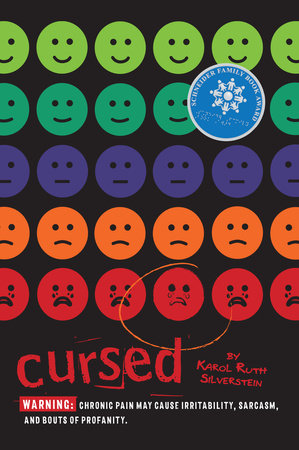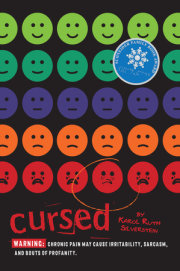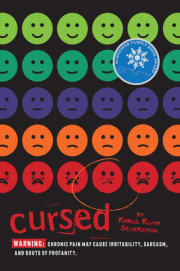I have a perfect mouth. That is, according to my dentist, aka my dad, aka
Dr. Dad.
Straight white teeth. Healthy pink gums. Zero cavities. Perfect.
The rest of me is
anything but. It's irregular. Damaged. Cursed.
Here's the basic info on me (the me I am now anyway):
1. I currently live with my dad in his one-bedroom bachelor pad, aka Dr. Dad's Batch Pad. He obviously wasn't thinking about me—or my older sister, Dani—when he rented this place. All there is for us to sleep on when we visit is the lumpy pullout couch in his poor excuse for a living room. Right after Thanksgiving, the Disaster-Formerly-Known-As-My-Parents decided I should live here. For my own good, they said. Now I'm riding the Sofa-Bed-From-Hell full time and Dani's so busy at college studying every second she's not burning up the basketball court, she hardly ever visits.
2. I'm fourteen and I'm in middle school. I kid you not. I was in high school, like a normal fourteen year old, back at the beginning of the year, before I got shipped to my dad's. Now I'm enrolled in glorious Grant Middle School, the only seven-eight-nine school left in Philadelphia, maybe the only one left in the country. It was the only school close to the Batch Pad that the Disaster-Formally-Known-As-My-Parents could get me into midyear.
3. Speaking of Glorious Grant Middle School, I haven't actually attended classes since the last week of December, which was about six weeks ago. No one knows. Not Mom. Not Dad. Not even Dani. Soon enough my secret will be out and, if I'm lucky, my parents will just kill me. If I'm not, they'll force me to go back to Glorious Grant Middle School, where I may or may not still be able to pass ninth grade.
4. My life seriously sucks (in case you haven't picked up on that yet). And it's not just living with Dr. Dad and going to middle school even though I'm fourteen or some other bullshit, like the boy I'm crushing on isn't crushing back. Trust me, my particular
life suckage is on a whole different level. (For the record, the boy I was crushing on
was totally crushing back—until I got sick.)
5. About that—I have this pathetic disease. Never mind what it's called. If I told you, you'd laugh and think I was joking. That's what Crush Boy did—right before he ghosted me. I did an internet search three months ago when I was first diagnosed, and what it turned up was so depressing I decided the less I knew, the better. Worse yet, pretty much no one gives a crap about this boring-ass disease. It's not something that would prompt my classmates to shave their heads in solidarity or have a bake sale for me. I doubt it's ever trended on Twitter. It's just this embarassing, painful, fucked up
thing I have.
6. And, yeah, I curse. Deal with it.
Copyright © 2019 by Karol Ruth Silverstein (Author). All rights reserved. No part of this excerpt may be reproduced or reprinted without permission in writing from the publisher.







